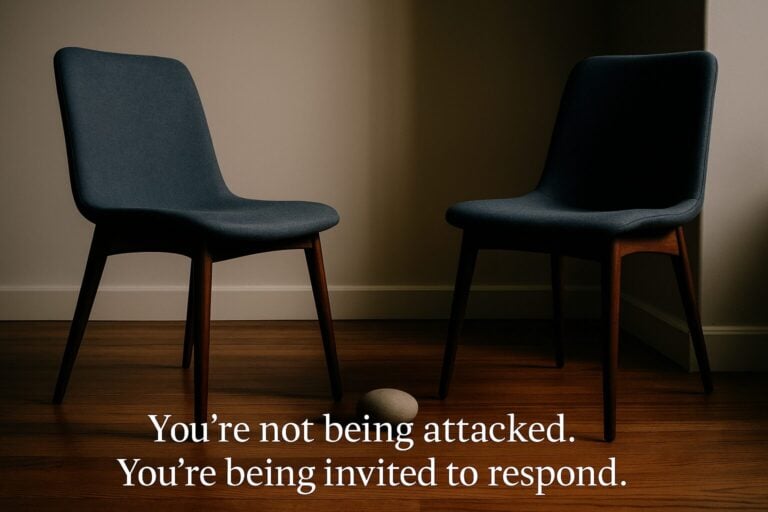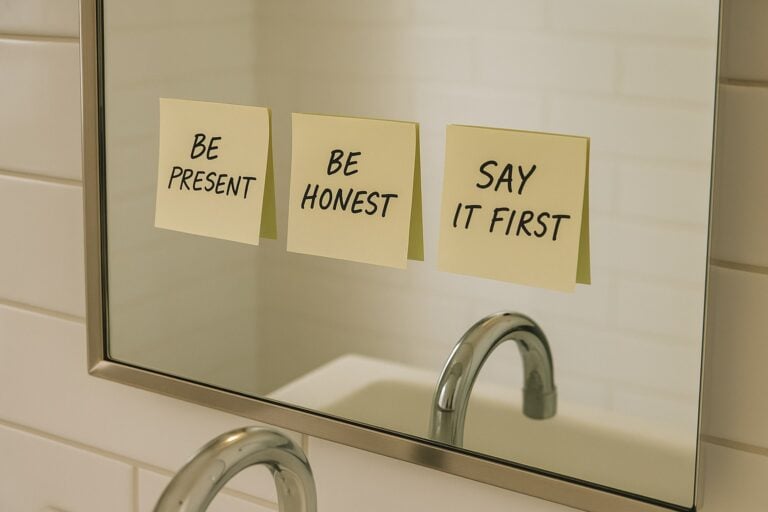(when you don’t feel as if you deserve it…)
Loving yourself is an ongoing challenging process for a lot of us. It involves nurturing a positive relationship with yourself, accepting who you are, and prioritizing your well-being. If you want to know how to love yourself unconditionally keep reading.
We develop a healthy self-esteem in childhood. It’s impacted by how our primary caretakers (typically our family) treated us. Behaviors leading to positive self esteem include:
- being listened to,
- being spoken to respectfully,
- receiving appropriate attention and affection
- having accomplishments recognized and
- mistakes or failures acknowledged and accepted.
Those interactions that negatively harm our self-esteem include:
- being harshly criticized,
- being physically, sexually or emotionally abused,
- being ignored,
- ridiculed or teased or
- being expected to be “perfect” all the time.
Voice Therapy and Self-Esteem: A Journey to Self-Love
Voice Therapy, developed by psychologist Robert Firestone, offers a powerful way to tackle those nagging self-doubts we all face. At its heart, this approach recognizes something crucial: those harsh thoughts telling you “you’re not good enough” aren’t random – they’re internalized voices from our past. We develop these critical inner dialogues based on how our primary caretakers treated us. Just like I mentioned above, when we were “harshly criticized, ignored, ridiculed or teased or expected to be ‘perfect’ all the time,” these experiences shaped how we talk to ourselves today.
What makes Firestone’s approach so helpful is how practical it is. He teaches us to identify our inner critic – to actually tune into those negative words. For many of us, these voices have specific origins, just like I discovered my critic sounded like my Navy dad with his high standards. Voice Therapy helps us create distance from these thoughts by speaking them in the second person (“You’re worthless,” “You’ll never succeed”), which lets us see them not as truths but as outdated messages.
Then comes the transformative part – responding with positive thoughts and feelings while putting things into perspective. It’s not about positive affirmations that your inner critic will mock, but about talking to yourself in a regular voice with compassion and understanding. Through this process, we gradually build a healthier relationship with ourselves, strengthening our authentic identity while recognizing that our flaws are real, but so are our strengths.
Stop Talking Trash to Yourself
Or, as we say in the business, “challenge negative self-talk.” I take this very seriously these days.
It is more than just eliminating all the trash talk that puts you down for the slightest transgressions. You have to start speaking kindly to yourself. It’s time to be your own best friend. Seriously, I mean it.
Recently I noticed a voice in my head about leaving dishes in the sink. As I tuned in, I was amazed at how hostile that internal critic could turn about a few plates.
The key part was that I noticed. I said to myself, “Excellent, girl, for noticing!” Practicing self-love and learning how to love is first about identifying that internal critic.
Identify the Inner Critic
Feeling bad is easy when your inner critic drowns out your positive feelings about yourself.
Pay attention to your inner dialogue. Tune into the words.
- Who talks like that?
- Is it a male or a female voice?
- If it were a phone call, could you guess who it was?
In my case, it was my Dad, a former Navy man who often talked about keeping things “in ship shape.” He was hopelessly challenged to achieve that goal. He had five kids and a wife with ADHD. Seven sets of dishes in the sink would have been intolerable for him.
Cultivate Self-Compassion
Once I knew it was my Dad, I tried to offer myself positive thoughts and feelings. I put things into perspective. I felt good to recognize how dramatically different my life is from his. I also discovered a wonderful resource that relieved shameful feelings about a messy house.
I don’t live in an Instagram world, and neither do you.
Treat yourself with kindness and understanding every day. Work hard to become your own best friend.
Forget About Positive Affirmations
Your inner critic thrives on them and mocks us for even trying. It turns out that if you have low self-esteem and use present-tense positive affirmations (e.g., “I’m lovable!”), it just makes you feel worse. If you love affirmations, just be sure to put them into a future tense (e.g., “I will one day be loveable!”).
Better yet, talk to yourself in a regular voice instead, imagine how your biggest fan might talk to you, and then talk to yourself that way: e.g., “It’s no big deal. I really don’t feel like doing them right now. I know they’ll always be cleaned up when I’m in the mood.”
Put Things Into Perspective
My Dad worked in a military or paramilitary organization for most of his life. He wanted to instill order, structure, and self-discipline.
I have worked as a psychologist in mental health. I value honesty, integrity, kindness, generosity, courage, and confidence. While I would love to have my Dad’s self-discipline and orderliness, it is not my top priority.
Knowing where my values are helps me accept that I’m not good at everything. I’ll have to tackle negative thoughts pragmatically.
My flaws are real, but so are my strengths. Identify your strengths and take pride in them.
Practice Self-care
Give yourself a pep talk when you are resistant to doing self-care routines. When I’m sluggish about exercising, I’ll hear myself say, “Just do it. You never want to do it but when you do you always feel better. It won’t take a lot of time, just…” and I find myself moving in that direction.
If sleep is an issue, create a bedtime routine you look forward to, and start it early. Sleep is one of the most critical ways to feel happy.
Surround Yourself With Positive People
Your closest buddies can get depressed and grouchy, but they don’t have to take it out on you. Spending time with people who overtly or covertly put you down intensifies a lack of self-love.
Set boundaries with family members that spell out how you want to be treated and what you will not accept. Stay close when they are positive about you. Do the opposite when they have nothing kind to say.
Cultivate relationships that nurture self-esteem and minimize contact with those who bring you down.
Set Healthy Boundaries
You have a right to set limits on how you will be treated in relationships. And you have a right to expect those boundaries to be respected. Saying goodbye to toxic friends is an act of self-care and self-respect.
Respect your needs and values. They are yours, and you don’t need everyone to embrace them, but you do need everyone to respect them. Communicate them clearly to others. Learn what issues are on your side of the street and what belongs on the other side. Keep those clearly delineated.
Get comfortable saying, “I hear that this is a problem. It’s just not MY problem.” The kind of love you want to cultivate for yourself is: “I’m okay, you’re okay.”
Prioritize Self-reflection
Take time for self-reflection. Write in a journal to cultivate introspection. Explore new passions and interests. Accept your emotions and needs, and make choices aligned with those needs.
Celebrate Your Achievements
I have a fitness coach who is absolutely ‘Team Kathy.’ She applauds my accomplishments, no matter how small. It’s infectious! I now take her lead and celebrate even small milestones.
Self-improvement comes in fits and starts. There are wins and there are gaps in between where you can’t find self-motivation. Allow yourself to rest when necessary. Trust it to change again.
Gratitude: The Science Behind Its Benefits
Practice gratitude
The results are in. Practicing gratitude daily has proven physical, psychological, and spiritual benefits. Gratitude is “a strong feeling of appreciation.”
Studies show grateful people aren’t just happier – they experience less depression, less stress, and greater satisfaction with their lives and relationships. There’s something special about gratitude that other positive traits don’t capture. Research comparing gratitude to the Big Five personality traits and 30 commonly studied traits found that gratitude uniquely explains aspects of well-being that other traits can’t account for.
When life throws challenges your way, gratitude appears to be a powerful shield. A long-term study revealed that people who were more grateful before a significant life transition coped better, experiencing less stress, less depression, and more satisfaction with relationships three months later. Grateful people also tend to use more constructive coping strategies like seeking support and personal growth rather than avoidance, self-blame, or substance use.
The benefits extend beyond mental health. Physical well-being improves, too! Grateful people enjoy better sleep (those positive thoughts before bedtime really help), increased physical activity, fewer healthcare visits, and even small improvements in cardiovascular health. In one fascinating study, teenagers who wrote gratitude letters over a month were likelier to eat healthier foods. This might be because gratitude motivates us to reciprocate kindness, including being kinder to our own bodies.
Cultivate a gratitude mindset by regularly acknowledging and appreciating the positive aspects of your life. Focus on the things you are grateful for. This can shift your perspective and foster self-love.
Remember, self-love is a journey, and it takes time and effort. Be patient and gentle with yourself, and remember that you deserve love and care just as much as anyone else. Reach out for help and support from loving friends, family, or professionals when you need assistance. Therapy or counseling can help work through deeper issues and develop self-love. But no one’s voice is more powerful than your own. Begin today.







